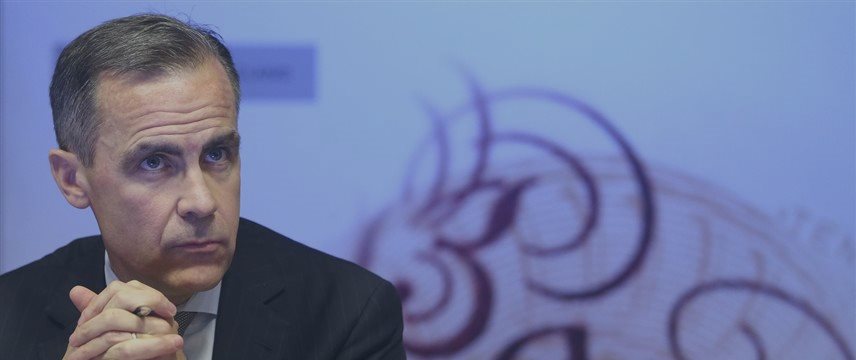Bank of England Governor Mark Carney said Wednesday that membership in
the European Union has made the U.K. economy more open and dynamic, but
also has exposed it to a number of risks. This marked his first public comments in
a hot debate about the U.K.’s future in the EU, which drove substantial criticism from the side of Carney's colleagues.
In a speech in Oxford, England, Carney said the U.K. has been one of the Union's biggest beneficiaries of its cherished “four freedoms” in the decades since it joined, taking the economic rewards of the free movement of capital, labor, goods and services across national borders more so than many other member states.
But he added that EU membership also has exposed the U.K. to economic rout, most recently as European officials struggled to fight a debt crisis that stroke the bloc’s weaker members and threatened to undo the 19-nation single-currency zone at the EU’s heart.
The BOE
governor’s speech was closely monitored as an assessment of how EU
membership affects the regulator’s ability to do its twin jobs of
maintaining low and stable inflation in the U.K. and safeguarding the
stability of Britain’s financial system. He emphasized more than once that
it wasn’t intended as a rundown of the pros and cons of being a member
state, the Wall Street Journal reports.
But his comments nevertheless highlight the high stakes facing the Kingdom as a referendum on its EU membership looms.
Criticism
... rushed at Carney with some of his peers claiming he should not have inclined from plain monetary economics to interfere in political matters.
Catherine Bearder MEP, chair of the Liberal Democrat EU referendum campaign, commented:
"The Bank of England’s intervention confirms what we already know: being in the EU brings huge benefits to the UK economy. Those calling for EU exit have failed to present a credible alternative that would protect the economy and secure jobs. Instead of retreating to the side-lines, Britain should stay and lead reform in Europe from within."
Howard Archer, chief UK and European economist at IHS Global Insight, said:
"Despite Mark Carney’s stressing that his speech and the BOE report is not a comprehensive view of the pros and cons of UK membership of the EU, our strong suspicion is that the pro-EU membership camp will find more to grab hold of and champion than the Out camp."
Chancellor George Osborne supported BOE's Governor, saying:
"I agree with the speech the governor made. The analysis he outlined was that EU membership has helped create a more open and dynamic economy, but, and there’s a crucial but, developments in the eurozone mean we do need safeguards for the UK."
That’s why the UK has embarked on negotiations to secure reforms of the European Union, he added.
"As the governor pointed out it’s [EU membership] not an unalloyed good. It’s presented challenges. The single market in financial services is on balance a good thing for the UK. The government’s position is not that we are against immigration. We are for controlled migration."
JPMorgan economist Allan Monks took a closer look at Mark Carney’s Brexit speech saying his report is not a detailed quantitative review of the pros and cons of EU membership, but rather is directed to assess the impact of membership on the Bank’s policy objectives:
"Carney highlights the beneficial impact EU membership has likely had in lifting sustainable growth in the UK (through fostering greater competition, efficiency and openness in key markets). The flip side of this openness to Europe is the higher sensitivity to external shocks, although Carney believes policy makers in the UK have adequate capacity to deal with these challenges.
A key concern for Carney looking forward is that UK policymakers retain adequate flexibility and control over policy, even as euro area countries go through a process of greater integration and risk sharing in the wake of the financial crisis. Carney’s comments have clear parallels with the government’s position in the debate.
The assertion that EU membership is a net positive for the UK, with caveats that the terms of membership need to reflect UK domestic interests and flexibility, will go down well with the Prime Minister - who seeks to renegotiate the terms of membership ahead of the referendum vote, and remove a requirement for the UK to commit to ‘ever closer union’.”



